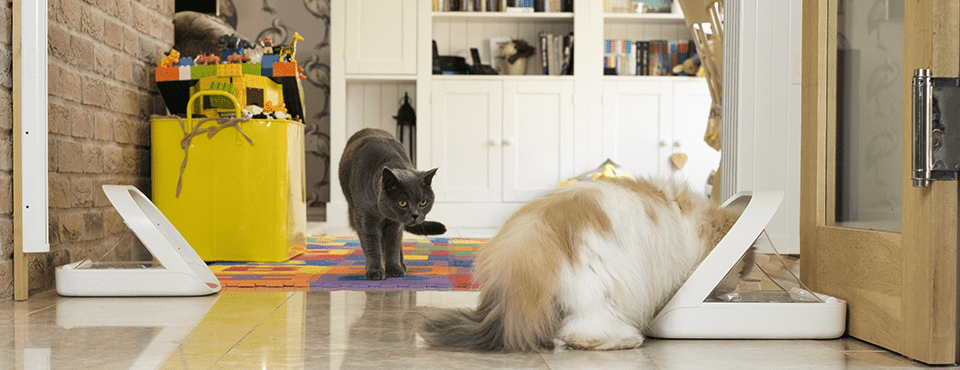Questions You Always Wanted to Ask Your Dog’s Vet
But Were Afraid to Ask…
HEALTH & PROTECTION
23 Sep, 2020
READ 7 minutes

You want the best for your beloved four-legged companion, and taking him to the veterinarian for regular exams is just one of the things you do to keep your pet healthy. While there, it’s a good idea to ask your vet any questions you may have, but perhaps you are nervous that the vet will think these questions are silly or foolish. Most vets will tell you however, there are no stupid questions! The more you know about your pet, the better. For an idea of some questions that are frequently put to veterinarians, see below.
WHY ARE DOGS’ NOSES ALWAYS WET?
Dogs have an amazing sense of smell. They explore their world through smell and detect scents up to 10,000 times better than we do! Dogs have more than 100 million sensory receptor sites in the nasal cavity, compared to our 6 million.
This incredible smelling system works best with a damp nose which catches scent particles better.
Your dog’s nose maintains its moistness in two ways:
- Mucus secretion. The lining contains cells that produce mucus to keep the inner nasal surface moist.
- Constant licking. Dogs lick their noses a lot to keep them clean, and remove the dirt from smelling everything. They also lick their noses to deliver scent particles into their mouths. Many dogs also learn to lick their noses to keep them from getting dry.

WHAT DOES A DRY NOSE MEAN?
People worry that if their dog’s nose is warm and dry, it means he is sick. This is not necessarily true. Some healthy dogs have naturally dryer noses and likewise, some sick dogs have cool, wet noses. The temperature and moistness of a dog’s nose is not a good indicator of a dog’s overall health status or body temperature.
If your dog’s nose is warm and dry and he is acting normally, there is likely no reason to worry.
If there are other signs, such as listlessness or appetite loss, you should consult your veterinarian. Also, if skin around the nose becomes red, cracked or sore, this could require vet attention.
WHY DO MY DOG’S PAWS SMELL LIKE CORN CHIPS?
Your dog has another type of gland in the skin of her paws that help to keep her skin moist and supple. These are called eccrine glands. Sometimes, bacterial action on skin and debris in the paw pads can, in fact, produce a smell like corn chips!
Bacteria are one of the biggest causes for smelly feet and when you think about all of the different surfaces your dog’s paws touch on a daily basis, that makes sense. Some types of bacteria on your pooch’s paw pads or in the surrounding hair can produce strong odours.
This odour may just require a bath, but if it is overwhelming or you suspect a skin condition, then it’s a good idea to get your dog a check-up.

ARE SOME DOG BREEDS, LIKE PIT BULLS, REALLY MORE AGGRESSIVE?
Dog breeds were originally selected for their aptitude to perform specific jobs like hunting, keeping watch, herding or even lap sitting.
The pit bull descends from the original English bull-baiting dog, selected for its strength of bite to hold bulls, bears and other large animals. Today’s pit bulls are more likely the result of years of random breeding, without regard for behavioural traits, and now have a wide range of behavioural predispositions.
Genetics may predispose a dog to certain types of behaviour, but his environment, socialization and experiences will ultimately dictate his actual behaviour.
It’s a good idea to look at the individual dog, rather than just his breed.

DOES GETTING A DOG NEUTERED OR SPAYED CHANGE HIS OR HER PERSONALITY?
There are many behavioural and medical benefits to spaying (for females) or neutering (for males) your four-legged companion. While your dog’s personality will not change dramatically, some less desirable traits that could otherwise develop will be avoided. The spayed female, for example, won’t go into heat, avoiding the blood dripping, frequent urination and howling. Your neutered male will less likely mark his territory all over the house. He will lose interest in mounting other dogs, people and inanimate objects. And best of all, aggressive behaviours will be subdued.
DO DOGS HAVE A DOMINANT PAW?
Like us, many dogs show a preference for using one paw over the other, or what researchers call “laterality.” In 23 different studies, 63% of pups preferred a specific paw, while 37% had no preference. Only about 1% of people are ambidextrous.

CAN SOMEONE WITH A DOG ALLERGY EVER ADAPT TO LIVING WITH DOGS?
You may want to first select a dog from a “hypoallergenic” breed, and that suits your lifestyle. Then there are some additional measures you can take in order to adapt to life with a furry four-legged friend:
- Allergy-proof your household. Minimize surfaces that allergens easily adhere to, such as carpeting and curtains.
- Keep surfaces clean. Frequent floor and furniture vacuuming is recommended and wearing a face mask can help. Regularly launder fabrics your pooch comes into contact with, such as his bed, and remember the furniture in your bedroom.
- Hygiene. Wash your hands after touching your dog and keep your dog groomed and frequently bathed. Perhaps someone else in your family could bathe your pooch, or you could go to a professional groomer.
- Medications. Consult your physician about treatments that might be most helpful for you.
CAN DOGS CRY TEARS WHEN THEY’RE UPSET?
Your dog can feel sadness and grief, but she doesn’t cry the same way humans do, with a flow of tears.
Dogs have tear ducts and they produce tears, which are critical to keep the eyes comfortable, healthy and clear of debris. If you notice that your dog is leaking tears, there could be many causes:
- A developing eye infection
- A narrow or blocked tear duct
- Allergies
- Damage to the surface of the eye
- An irritant in the eye
Concerns regarding dog eye health are an important reason to consult your veterinarian. Sometimes failure to produce enough tears can lead to the appearance of increased debris or mucus in the eyes.

RELATED POSTS
-

Learn about canine babesiosis, a tick-borne disease that affects dogs worldwide. Discover its symptoms, treatments, and how to prevent it.
-

Explore how diabetes impacts cats, its signs, risk factors, and effective management through medication and diet for a healthier feline life.
-

Diabetes affects an estimated 1 in 300 dogs, diabetes is more common in middle-aged and older dogs (4-14 years of age), it can be diagnosed in dogs of any age, including young dogs. Read more.
-

Ever wonder how your dog experiences the world? Why he or she sniffs everything, everywhere? Read more and find out








